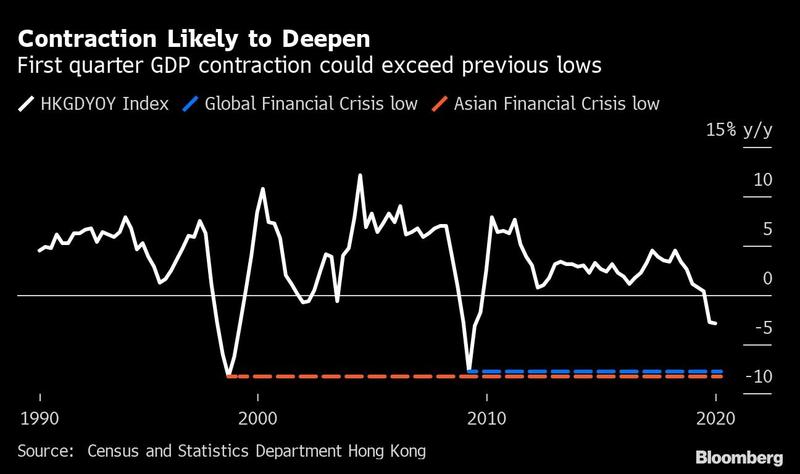
Hong Kong’s economy will be, inevitably, worse than expected, shrinking by 4 to 7 percent this year under the strain of the coronavirus pandemic, Financial Secretary Paul Chan Mo-po warned on Wednesday.
ALSO READ: HK: Cushioning a long-term deficit with tax reforms
The magnitude of the economic setback in the first three months of this year could be worse than that of the 2008 global financial crisis and the Asian financial crisis in 1999, Chan told legislators vetting his budget delivered in February.
Hong Kong’s economic recovery depends largely on social stability. And, if the violent clashes, road blockades and vandalizing acts in the second half of last year recur, it will lead to more shop closures, higher unemployment and weakened investor confidence
Paul Chan Mo-po,
Financial secretary, HKSAR govt
In his 2020-21 financial budget speech, Chan projected that the local economy would shrink by 0.5 to 1.5 percent. But, due to the more serious and more enduring economic impact of the pandemic than he thought, he expects the economy to contract further this year.
The two rounds of anti-pandemic funds launched by the SAR government this year amounts to about HK$290 billion ($37.42 billion), or around 10 percent of Hong Kong’s GDP.
At the same time, due to the economic depression, the government’s revenues from taxes and land sales will be affected, causing the 2020-21 fiscal deficit to rise substantially to HK$280 billion or more, Chan said.
In addition, the city’s fiscal reserves have dropped from HK$1.1 trillion to about HK$800 billion — equivalent to 14 to 15 months of government expenditure — according to Chan.
READ MORE: HK financial system remains resilient, finance chief says
He stressed that the fiscal reserves are meant for stabilizing the local economy and people’s livelihood instead of saving up more money. It’s time to make the best of the reserves accumulated during the good times to help Hong Kong ride out the storm.
Chan also said applications for the HK$10,000 cash handout to all adult permanent residents proposed in the 2020-21 Budget are expected to open in late June. He expected the money to be given out in July, and most eligible applicants may get the cash in August.
Hong Kong’s economic recovery, he said, depends largely on social stability. And, if the violent clashes, road blockades and vandalizing acts in the second half of last year recur, it will lead to more shop closures, higher unemployment and weakened investor confidence.
Chan said the deep-seated conflicts reflected in last year’s social unrest need time and patience to resolve. He urged the public to shelve the divergence and create more space for resolving conflicts.
With Bloomberg inputs


